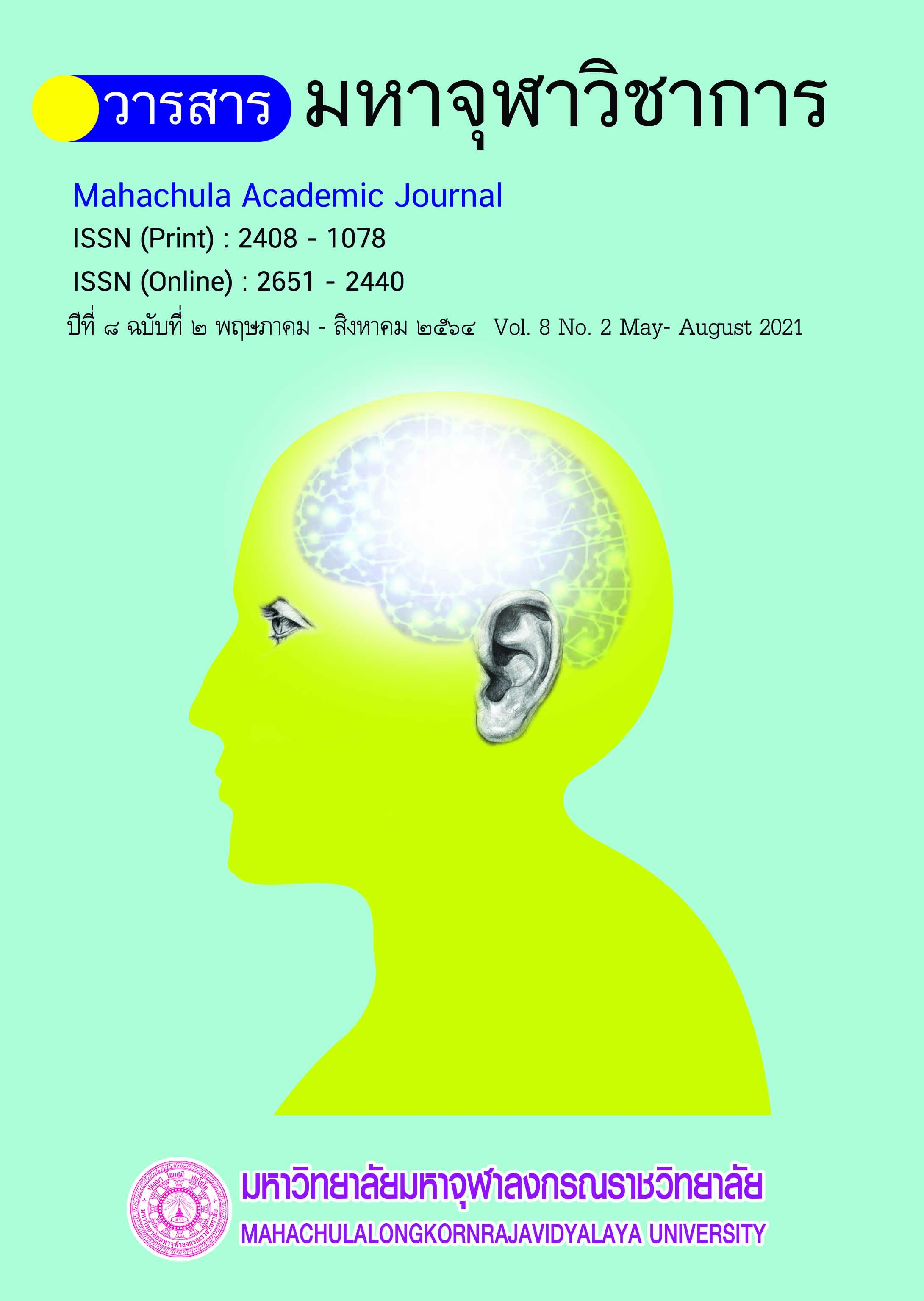Abbot Development Based on Ãvãsikadhamma
Main Article Content
Abstract
The thesis on topic “Abbot Development Based on Ãvãsikadhamma” consists of the following three objectives: 1) to study the current situation of abbot development in the area of Muang District, Chonburi Province; 2) to study the Dhamma supported the abbot development; and 3) to analyze the abbot development based on Ãvãsikadhamma. This is a qualitative research. Thirty key informants are collected the data through a structured interview and conducted by descriptive analysis.
The results reveal that the current situation of abbot development in the area of Muang District, Chonburi Province is rather the limited skills related to a social work, focused on work limited area, and unadjusted themselves to social environment properly. Hence, it causes the abbots to face the problems to develop themselves effectively because they lack of work experiences or self-development.
For the Dhamma supported the abbot development, it has to emphasize the Ãvãsikadhamma which is concerned with 1) Ãkappavattanasampanna: to be accomplished in manner and duties; 2) Bahussuta: to be a great learner; 3) Paṭisallekhitā: to be a refined person, be fond of solitude, and be rejoiced in an ennobling virtue: 4) Kalyāṇavācā: to be a sweet talker, convincing speaker, and good negotiator; and 5) Paññavā: to be a wise and intelligent person.
Therefore, it is proposed to the abbots to the area of Muang District, Chonburi Province to concentrate on self-development with the Ãvãsikadhamma that is to develop language and communication skills, develop both of secular and religious knowledge, including computer and modern sciences. Furthermore, they have to administer their own monasteries effectively and be able to be verified by the Dhammavinaya and Sangha rules. Especially, the abbots have to develop themselves with the principles of Sīla, Samadhi, and Paññā.
Article Details
References
น้อย ลายคราม. หลักการบริหารและการจัดการวัดในยุคโลกาภิวัฒน์. กรุงเทพมหานคร : บริษัท เอ.พี. กราฟิคดีไซน์และการพิมพ์ จำกัด, ๒๕๓๙.
พระพรหมคุณาภรณ์ (ป.อ.ปยุตฺโต). พจนานุกรมพุทธศาสตร์ ฉบับประมวลธรรม. กรุงเทพมหานคร : โรงพิมพ์จุฬาลงกรณมหาวิทยาลัย, ๒๕๕๑.
สุธี สุทธิสมบูรณ์ และสมาน รังสิโยกฤษฎ์. หลักการบริหารเบื้องต้น. พิมพ์ครั้งที่ ๑๗. กรุงเทพมหานคร : สำนักพิมพ์ ก.พ., ๒๕๔๑.
มานพ พลไพรินทร์. คู่มือการบริหารกิจการคณะสงฆ์. พระราชบัญญัติคณะสงฆ์ หมวด ๓-๔ ว่าด้วยเรื่องวัดและว่าด้วยเรื่องเจ้าอาวาส ในมาตรา ๕-๑๙, ๒๕๐๕.
พระครูพิศาลถิรธรรม. “ประสิทธิภาพการบริหารจัดการวัดของเจ้าอาวาสในเขตธนบุรีกรุงเทพมหานคร”. วิทยานิพนธ์พุทธศาสตรมหาบัณฑิต (การบริหารจัดการคณะสงฆ์). บัณฑิตวิทยาลัย : มหาวิทยาลัยมหาจุฬาลงกรณราชวิทยาลัย, ๒๕๕๓.
พระครูไพโรจน์สารคุณ (สุเทพ งามละมัย). “ทักษะการบริหารจัดการวัดของเจ้าอาวาสในอำเภอกำแพงแสน จังหวัดปทุมธานี”. วิทยานิพนธ์ปริญญาพุทธศาสตรมหาบัณฑิต. บัณฑิตวิทยาลัย : มหาวิทยาลัยมหาจุฬาลงกรณราชวิทยาลัย, ๒๕๕๓.
มหาจุฬาลงกรณราชวิทยาลัย. พระไตรปิฎกภาษาไทย ฉบับมหาจุฬาลงกรณราชวิทยาลัย. กรุงเทพมหานคร : โรงพิมพ์มหาจุฬาลงกรณราชวิทยาลัย, ๒๕๓๙.


